Nihal Sharma
On a Foundation Model for Operating Systems
Dec 13, 2023
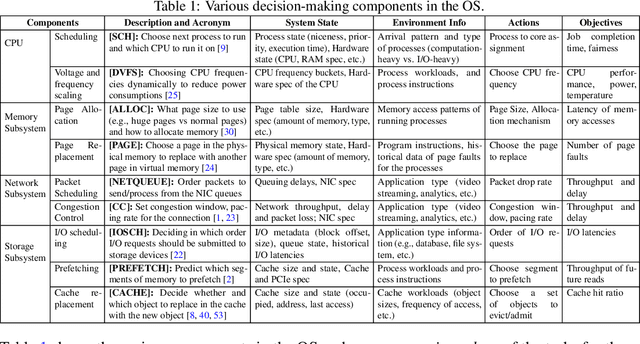
Abstract:This paper lays down the research agenda for a domain-specific foundation model for operating systems (OSes). Our case for a foundation model revolves around the observations that several OS components such as CPU, memory, and network subsystems are interrelated and that OS traces offer the ideal dataset for a foundation model to grasp the intricacies of diverse OS components and their behavior in varying environments and workloads. We discuss a wide range of possibilities that then arise, from employing foundation models as policy agents to utilizing them as generators and predictors to assist traditional OS control algorithms. Our hope is that this paper spurs further research into OS foundation models and creating the next generation of operating systems for the evolving computing landscape.
Episodic Bandits with Stochastic Experts
Jul 07, 2021
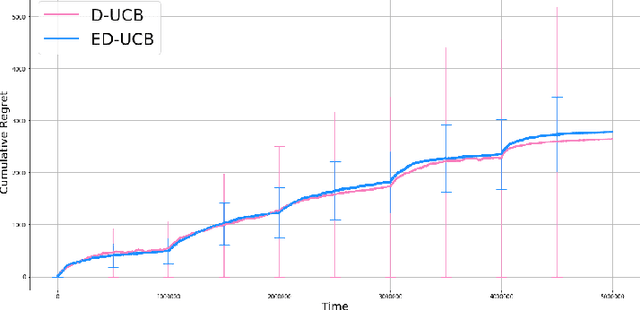
Abstract:We study a version of the contextual bandit problem where an agent is given soft control of a node in a graph-structured environment through a set of stochastic expert policies. The agent interacts with the environment over episodes, with each episode having different context distributions; this results in the `best expert' changing across episodes. Our goal is to develop an agent that tracks the best expert over episodes. We introduce the Empirical Divergence-based UCB (ED-UCB) algorithm in this setting where the agent does not have any knowledge of the expert policies or changes in context distributions. With mild assumptions, we show that bootstrapping from $\tilde{O}(N\log(NT^2\sqrt{E}))$ samples results in a regret of $\tilde{O}(E(N+1) + \frac{N\sqrt{E}}{T^2})$. If the expert policies are known to the agent a priori, then we can improve the regret to $\tilde{O}(EN)$ without requiring any bootstrapping. Our analysis also tightens pre-existing logarithmic regret bounds to a problem-dependent constant in the non-episodic setting when expert policies are known. We finally empirically validate our findings through simulations.
Warm Starting Bandits with Side Information from Confounded Data
Feb 19, 2020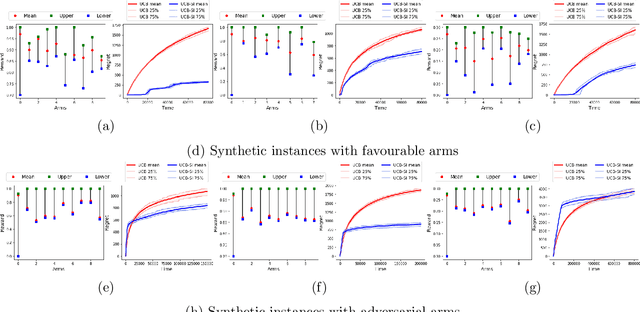
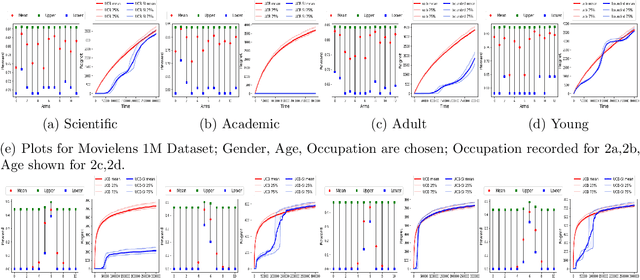
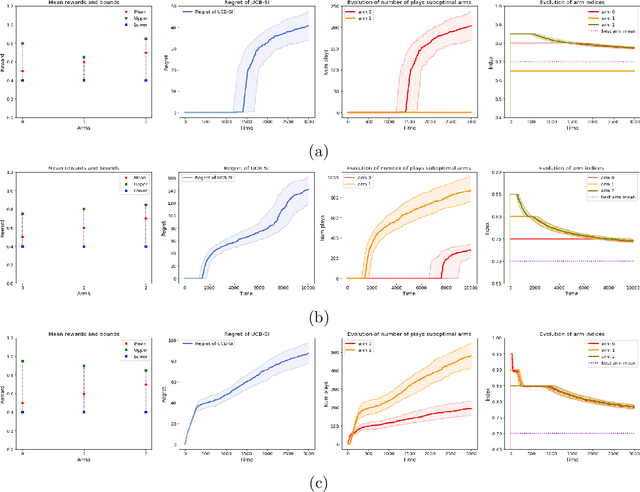
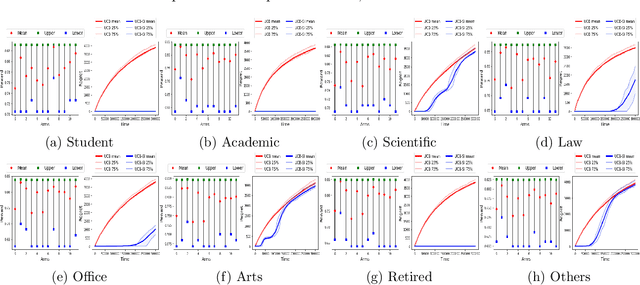
Abstract:We study a variant of the multi-armed bandit problem where side information in the form of bounds on the mean of each arm is provided. We describe how these bounds on the means can be used efficiently for warm starting bandits. Specifically, we propose the novel UCB-SI algorithm, and illustrate improvements in cumulative regret over the standard UCB algorithm, both theoretically and empirically, in the presence of non-trivial side information. As noted in (Zhang & Bareinboim, 2017), such information arises, for instance, when we have prior logged data on the arms, but this data has been collected under a policy whose choice of arms is based on latent variables to which access is no longer available. We further provide a novel approach for obtaining such bounds from prior partially confounded data under some mild assumptions. We validate our findings through semi-synthetic experiments on data derived from real datasets.
 Add to Chrome
Add to Chrome Add to Firefox
Add to Firefox Add to Edge
Add to Edge